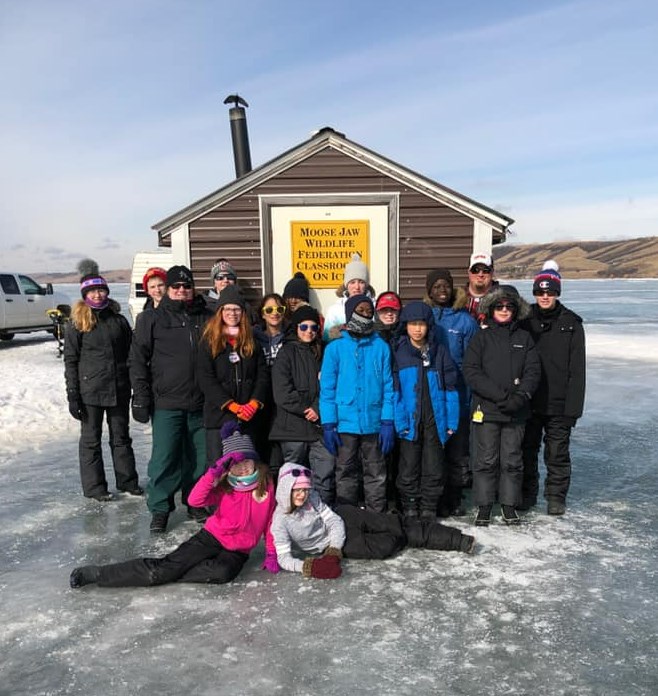The Moose Jaw Wildlife Federation (MJWF), a branch of the provincial organization, runs numerous education and conservation programs in the city, and MJWF area director Todd Smith hopes to see the community turn out to keep those programs going.
“The goal of the fundraising dinner is basically to provide us our operating budget for the year,” said Smith, who teaches at Ecole Ducharme in Moose Jaw. “That allows us to continue our work in habitat securement and improvement in and around Moose Jaw, and it also allows us to run our educational programs.”
The dinner will take place on April 15 at the Moose Jaw Heritage Inn. Tickets are $50 each or $450 to reserve a table for eight. The doors open at 5:30 p.m. for cocktails, with dinner following at 7 p.m.
The night will also include live and silent auctions, raffles tables, a 50/50 draw, and a mystery box draw.
Tickets can be purchased by calling Doreen at 306-692-4148, Sandra at 306-692-8848, or by emailing [email protected].
The programs that attendees will be supporting include:
- Pheasants in the Schools
- Fish in the School (FinS)
- Classrooms on Ice
- the Hamilton Flats reclamation project
- the Walleye Hatchery at Buffalo Pound
“The Pheasants in the Schools program is one that we’ll be starting up here about the end of April,” Smith explained. “We provide incubators and (Ring-neck Pheasant) eggs to about a dozen classrooms around Moose Jaw, on a yearly basis. And the students hatch those eggs out, and in the process they learn about embryology, the pheasants themselves, they learn about invasive species, native species, habitat needs, and life cycles.
“And once those chicks are hatched, we raise them over the summer and then release them as adult birds in and around Moose Jaw and southern Saskatchewan to help augment wild populations.”
The program is very popular with students in the city, and so is the similarly themed FinS program. FinS is run in conjunction with the Saskatchewan Wildlife Federation and the provincial hatchery at Fort Qu’Appelle — the province’s only aquaculture facility, which produces and stocks fish into public waters.
“We put an aquarium with a chiller into three different schools, and the kids receive 100 eyed rainbow trout eggs that they then hatch out and they raise them to fingerling size,” Smith said. “Then those fingerlings are stocked into the Buffalo Pound trout ponds on a yearly basis.”
The MJWF’s Classrooms on Ice is a nationally recognized conservation education program that open the eyes of students to the importance of water and aquatic ecosystems. Students get to ice fish, learn the anatomy and physiology of freshwater fish, and take water samples to learn about aquatic ecologies and water quality testing.
The Hamilton Flats Reclamation Project is a long-running transformation of a former industrial dumping ground into a healthy wild area with walking trails, bird houses, and well-cared-for native species.
Finally, the walleye hatchery is a MJWF project in co-ordination with the Saskatchewan Ministry of Environment. The MJWF raises about 4 million eggs every year, and the resulting fry are used to restock water bodies across the province.
“Ticket sales have been a little slow,” Smith said. “We’re not sure if maybe that’s because this is our first year back after COVID, but we’re hoping they pick up before the deadline, which is April 7.
“We’re just hoping the community will turn out in large numbers to help support the club and our environmental initiatives.”




